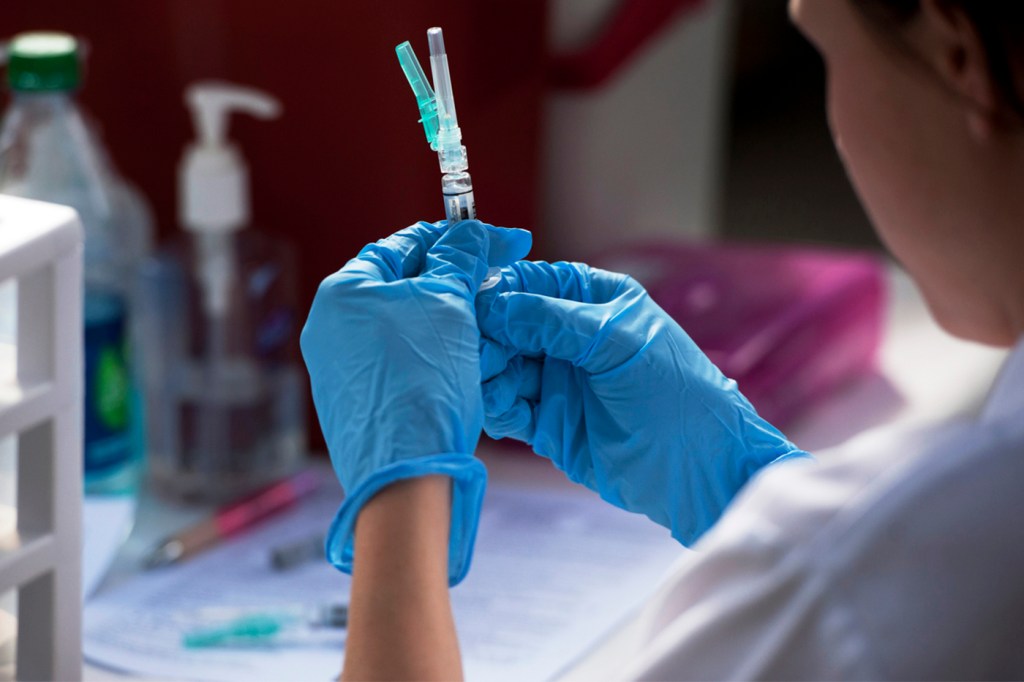Should you take the new RSV vaccine separately from the COVID and flu shots?

A new RSV vaccine for those 60 and older is now available at pharmacies along with an updated COVID-19 vaccine and seasonal flu shots.
It might be tempting to get all three at once, but Northeastern experts recommend that those eligible for the RSV vaccine space it out from the COVID and flu shots by a week or two to maximize its effectiveness and minimize side effects.
“The common strategy is to get the flu and updated COVID shots on the same day, in different arms, and then two weeks before or after that get your RSV vaccine,” says Brandon Dionne, an associate clinical professor in Northeastern’s School of Pharmacy and Pharmaceutical Science.
“That’s probably the optimal strategy at this point until we have more data on coadministration” with the COVID vaccine, he says.

The FDA on Sept. 11 approved updated COVID-19 vaccines in time for the fall and winter. The Moderna and Pfizer vaccines are so-called monovalent vaccines designed to protect against the Omicron variant XBB.1.5 that circulated in the spring and summer.
There’s no data available on whether the RSV vaccine could impact the effectiveness of the updated COVID shots, Dionne says.
There’s some indication that giving the RSV and flu shots at the same time could lower overall antibody response, but not below the minimal acceptable level for provoking an immune response, he says.
If somebody lives in a rural area and has to travel long distances to get their shots, there’s no harm in getting all three at once, Dionne says.
The risk of RSV
RSV is a respiratory illness that poses increased risk of pneumonia and other dangers in older people, which is why it is recommended for those 60 and over and also for younger people with compromised immune systems.
Babies are also more susceptible to RSV. In July, the FDA approved a monoclonal antibody treatment for infants in their first RSV season and for vulnerable children up to 24 months.
Neil Maniar, professor of public health practice, recommends getting the RSV shot before the flu and COVID vaccines.
The RSV vaccine “is longer lasting and you want to build up immunity” to what can be a serious respiratory illness, Maniar says.
Mansoor Amiji, distinguished professor in Northeastern’s School of Pharmacy and Pharmaceutical Sciences, says people who have a mild or no reaction to the RSV vaccine can go ahead and get their flu and COVID shots the next week.
“I think one week is sufficient” for healthy people who aren’t experiencing a lot of side effects, he says.
